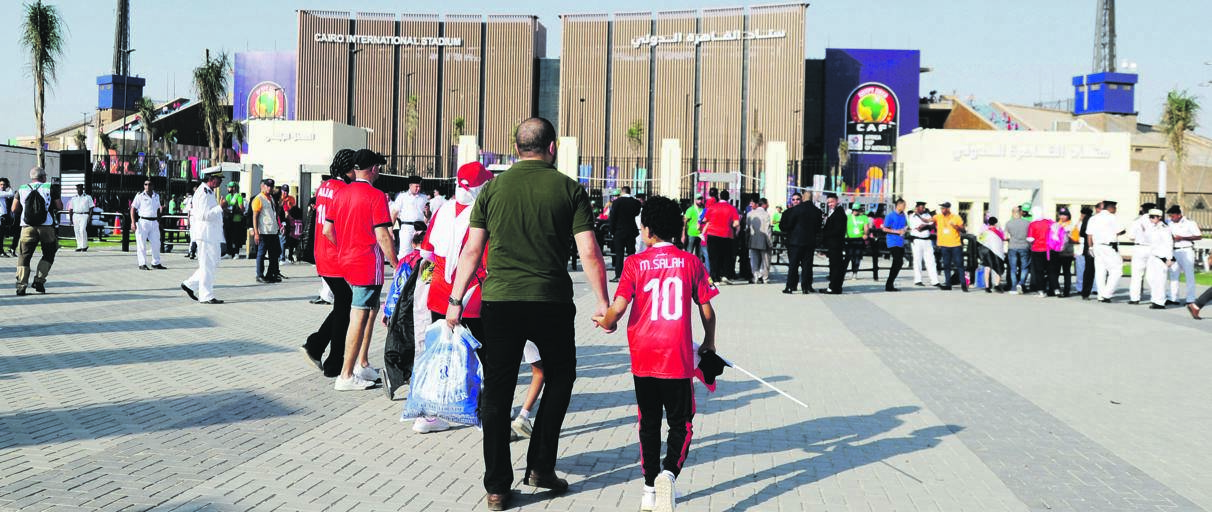The latest edition of Afcon has come and gone. Daniel Mothowagae reviews CAF’s maiden 24-nation tournament after his first-hand experience reporting on the event from Egypt.
As with most major sports tournaments, the Afcon in Egypt initially experienced some teething problems.
Jittery volunteers, limited signage leading to the stadiums as well as at entry points – plus language barriers – contributed to the confusion in the opening days of the tournament.
For instance, the volunteers at Al Salam Stadium ushered me onto the field for Bafana Bafana’s opening match against Ivory Coast and I ended up sitting in the VIP box instead of the media tribune.
The seemingly uniformed security personnel at the main entry points – mostly made up of the army and police officers – had no idea what various accreditation badges meant.
Perhaps Egypt can be forgiven on the grounds that the organisers only had six months to prepare for the tournament after replacing the original hosts Cameroon.
Still, a number of factors were tested in CAF’s first 24-nation competition in Egypt, which beat South Africa by one vote in a hastily arranged bidding process in December.
The capacity required to host an expanded tournament
Only a few African countries can present six stadiums to the quality that Egypt did, or, even better, stage a tournament at the eleventh hour.
The minimum requirement in the current format is six stadiums, while the previous 16-team competition needed just four.
Safa president Danny Jordaan, the vice-president of the Afcon organising committee, said: “We must give credit to the Egyptians for not just the stadiums, but particularly the quality of the playing surfaces. I think it will put pressure on the next host.”
Egypt met the demands with the Cairo International Stadium, the 30 June Stadium, the Al Salam Stadium (all in Cairo), the Alexandria Stadium, the Ismailia Stadium and the Suez Stadium.
Poor spectator turnout
Apart from the games involving hosts Egypt, spectator turnout was generally poor at the other matches.
Constant chats with the locals pointed to steep ticket prices and the introduction of the “fan ID” as key factors that contributed to the low attendance rates.
This happened even after the organising committee reduced ticket prices after a backlash from the Egyptian football fans over the costs.
General admission tickets for the Egyptian national team’s matches cost 150 Egyptian pounds (R126), while the most expensive tickets sold for about R670. The games not involving the host nation were pegged at R84.
However, a fan ID card was a prerequisite to book tickets for any match.
This was obtained through the tournament organising committee’s website or through sales outlets.
Even if fans could get free tickets, they still needed the fan ID to go through the turnstiles.
While this was a great initiative and an attempt to be on par with the evolving technology that will also help curb hooliganism, the implementation of the system happened too quickly and too soon before the tournament that was moved to another country at the eleventh hour. CAF needed to educate fans better regarding the processes around the fan ID.
Challenges to overcome
Jordaan conceded that the date of the event would create problems as the tournament headed towards the equator.
“In June, it will be extremely hot in countries on and around the equator. It will be more bearable in countries to the south because it will be winter in June. I think it’s something that we’ll have to look at.”
The Afcon tournament was played in scorching heat and humid conditions in Egypt. It is the middle of summer in the north African country and daytime temperatures got as high as 38°C.
Co-hosting is the solution to spare CAF any embarrassments in future
The expanded 24-team format means an increased demand for extra resources and infrastructure.
Egypt passed the test in this regard because it had the hotels readily available, as well as infrastructure in the form of the stadiums that were up to international standards.
Countless times, many African countries have failed to deliver the infrastructure on time.
Cameroon was the latest to fail the test before Egypt stepped in.
 |
| ||||||||||||
| |||||||||||||




 Publications
Publications
 Partners
Partners










